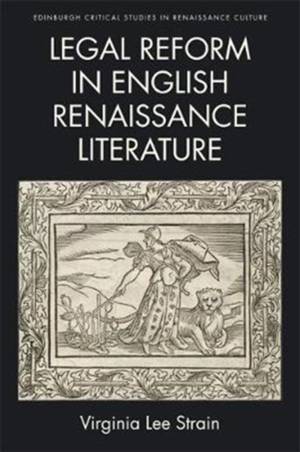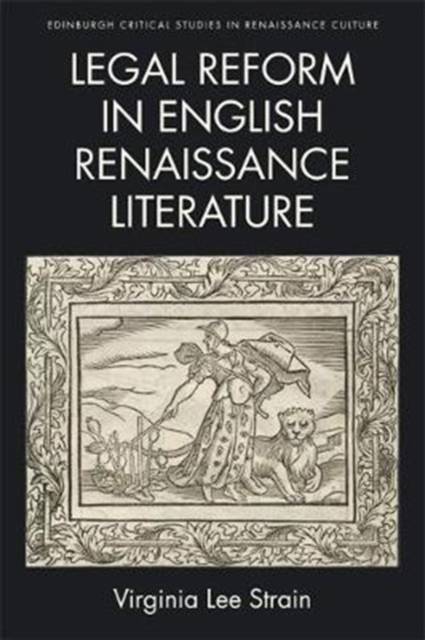
- Afhalen na 1 uur in een winkel met voorraad
- Gratis thuislevering in België vanaf € 30
- Ruim aanbod met 7 miljoen producten
- Afhalen na 1 uur in een winkel met voorraad
- Gratis thuislevering in België vanaf € 30
- Ruim aanbod met 7 miljoen producten
Omschrijving
The first monograph study of legal reform and literature in early modern England
This book investigates rhetorical and representational practices that were used to monitor English law at the turn of the seventeenth century. The late-Elizabethan and early-Jacobean surge in the policies and enforcement of the reformation of manners has been well-documented. What has gone unnoticed, however, is the degree to which the law itself was the focus of reform for legislators, the judiciary, preachers, and writers alike. While the majority of law and literature studies characterize the law as a force of coercion and subjugation, this book instead treats in greater depth the law's own vulnerability, both to corruption and to correction. In readings of Spenser's Faerie Queene, the Gesta Grayorum, Donne's 'Satyre V', and Shakespeare's Measure for Measure and The Winter's Tale, Strain argues that the terms and techniques of legal reform provided modes of analysis through which legal authorities and literary writers alike imagined and evaluated form and character.
Key Features
Reevaluates canonical writers in light of developments in legal historical research, bringing an interdisciplinary perspective to works Collects an extensive variety of legal, political, and literary sources to reconstruct the discourse on early modern legal reform, providing an introduction to a topic that is currently underrepresented in early modern legal cultural studiesAnalyses the laws own vulnerability to individual agency
Specificaties
Betrokkenen
- Auteur(s):
- Uitgeverij:
Inhoud
- Aantal bladzijden:
- 240
- Taal:
- Engels
- Reeks:
Eigenschappen
- Productcode (EAN):
- 9781474416290
- Verschijningsdatum:
- 5/03/2018
- Uitvoering:
- Hardcover
- Formaat:
- Genaaid
- Afmetingen:
- 155 mm x 239 mm
- Gewicht:
- 498 g

Alleen bij Standaard Boekhandel
Beoordelingen
We publiceren alleen reviews die voldoen aan de voorwaarden voor reviews. Bekijk onze voorwaarden voor reviews.









